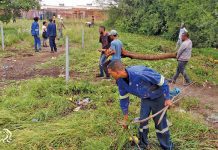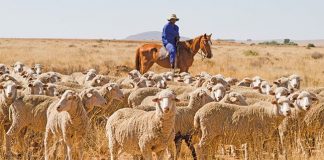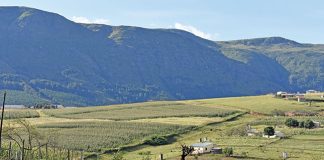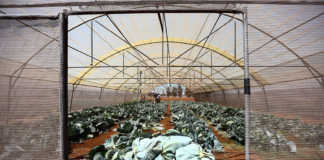The story of Zivuseni Agricultural Co-operative is one of patience, careful planning and sheer hard work. It holds valuable lessons for anyone interested in starting out as a farmer.
In 2001, Themba Ncongwane, his brother Lucas and Sibongile Simelane, all from Duduza near Nigel and in their twenties, started a non-profit organisation and applied to the National Development Agency (NDA) for funding for an egg production project.
For over four years the group heard nothing. Then in 2005, they received the exciting news: They had been granted R250 000 and were told they could register as a profit-making company. Zivuseni Agricultural Co-operative was born and the local municipality gave the new company a small piece of land.
By then, the co-op had swelled to seven shareholders with the addition of Phumzile Moloi, Busisiwe Ncongwane, Gloria Moloi and Madoda Nhlapo. “We started by building a single layer house for 1 200 layers producing about 1 150 eggs a day,” recalls Themba. “We marketed the eggs at local butcheries.”
The project was soon doing well, and with space becoming limited, Zivuseni approached the then Department of Land Affairs for more land. In 2007, after conducting interviews with the co-op’s members and realising their potential, the department bought a 186ha farm in Langzeekoegat, outside Nigel and leased it to Zivuseni under the Proactive Land Acquisition Strategy (PLAS), with an option-to-buy clause.
“But under the government’s new strategy, the clause has since been removed, so we don’t have the option to buy,” notes Themba.
Support
Moving from half-a-hectare to 186ha felt overwhelming at the time. “We didn’t know what we were going to do with the land!” recalls Themba.
In addition to the farm itself, the department supplied Zivuseni with 18 Bonsmara cows. Support also came from the nearby Impala Platinum Mine, which bought the co-op a bakkie and several sheep, and financed planting 20ha to maize.
Mentorship was provided through Agri Gauteng, which arranged for local farmer Dawid Groesbeek to assist the group. He immediately set to work drawing up a livestock management programme and teaching the members how to prepare land and plant grain.
Value of diversification
Egg production is the main activity at Zivuseni. The co-op has a single layer house in which 2 000 birds produce about 1 950 eggs a day. The house has a carrying capacity of 6 000 birds, so there is room for expansion.
“We market our eggs at Real Meat Butchery and Central Meat Butchery in Nigel,” says Themba. “We’re not meeting our demand because of our small hen numbers, but we hope to do so once the house is running at full capacity.”
According to Themba, running a mixed farm has kept them afloat. “This is because if one area is struggling, we can rely on the other operations to keep us going. For example, the sheep and cattle have helped us with cash flow. When times are hard, we sell a few cattle or sheep to cover costs,” he says.
The cattle and sheep run on the veld and there is a small feedlot for male weaners, which are sold at local stock sales.
“We keep the females to increase the stock numbers,” says Themba. But he admits that the remaining 100ha will not provide enough grazing if Zivuseni is to increase its herd substantially.
The co-op has been growing maize since 2008 and currently plants 90ha, of which 30ha land is leased from a neighbour. The crop is grown with the aid of a loan from the Micro-Agricultural Financial Institutions of South Africa (Mafisa). “The loan is on 8% fixed interest rate, and we sell our maize to Afgri in Nigel,” he adds.
Under Dawid’s mentorship, both the livestock and crops have thrived. In 2008, the co-op planted 20ha, in 2009, 60ha and, last year, 90ha. This year, the co-op is again planting 90ha. The cattle herd too has grown – from 18 at the start to 40 today.
Management
Themba believes the co-op’s success is mainly due to good management. “We’ve shared duties according to our strengths, so we’re all receiving training in different aspects of managing the farm,” he explains. Weekly meetings are held to discuss progress and each member is expected to write a monthly report on his or her area of responsibility.
Themba is the farm manager and has attended courses in quality control, entrepreneurial leadership, marketing management, capacity building and financial management to help him in this role. Sibongile, now Themba’s wife – they married in 2007 – is the financial manager and Lucas the marketing manager. “Lucas brings experience in customer service, as he was a supervisor at a local retail store,” says Themba.
Phumzile is the production manager, Busisiwe the stock control manager and Gloria an administrator. Sadly, Madoda died in 2009 after a short illness. She was highly committed, recalls Themba, and has been greatly missed. “We each do our best to make sure the farm is successful,” says Themba.
“We’re working hard to grow the business, but 186ha is small for six people. As our experience improves, we need to grow our economy of scale (a proportionate saving in costs gained by an increased level of production) to start making a good profit.”
Contact Themba Ncongwane on 083 670 7459.
Caption:
Zivuseni members Lucas Ncongwane, Phumzile Moloi and Themba Ncongwane.
PETER MASHALA













